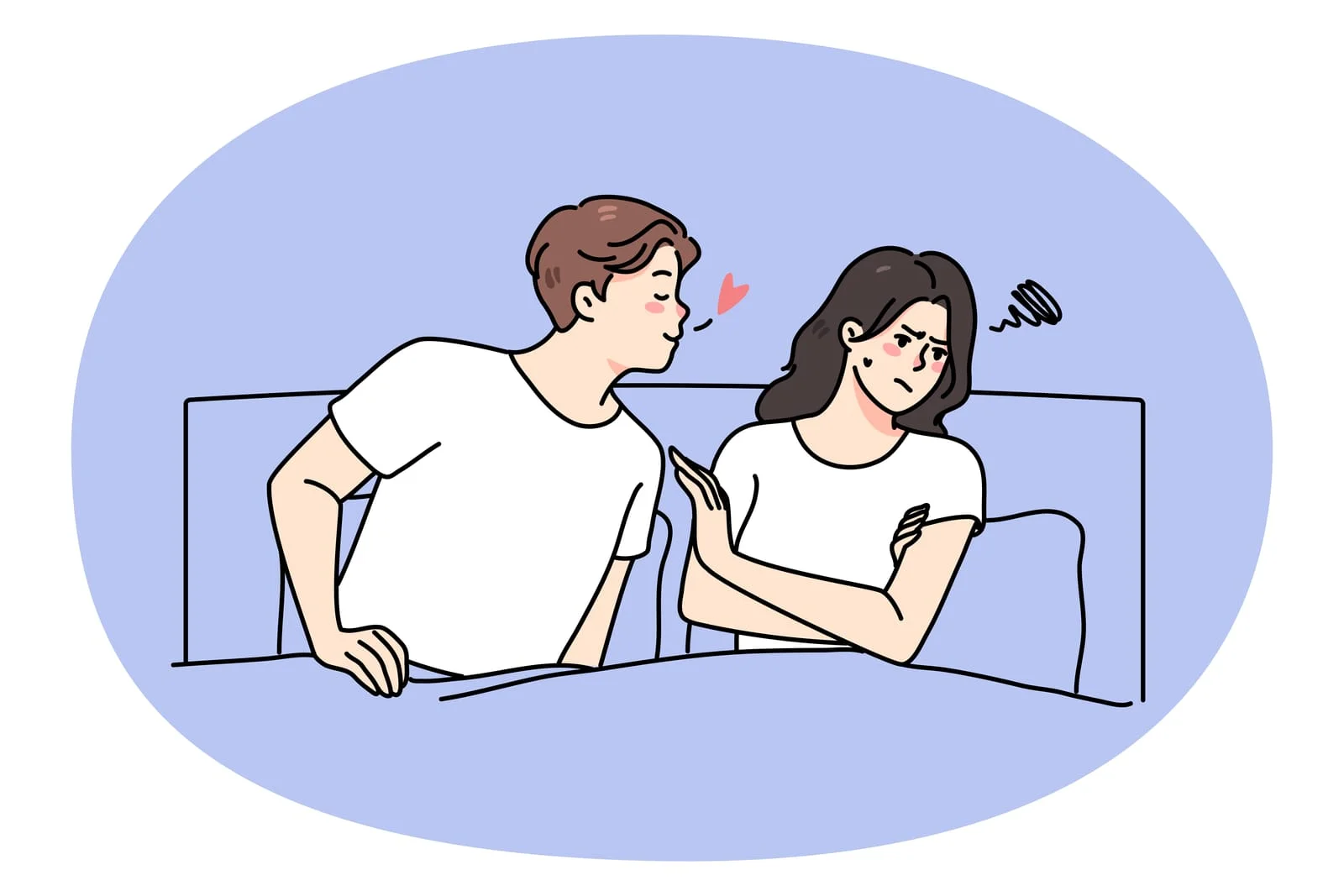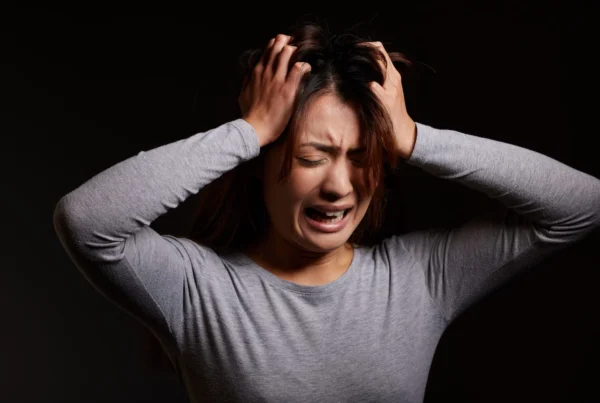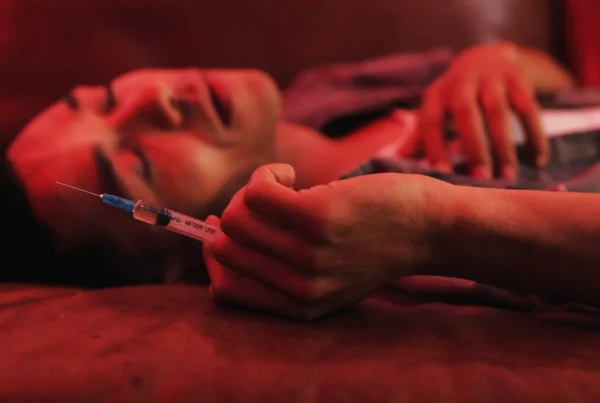Hypoactive Sexual Desire Disorder (HSDD) is a common condition that can impact an individual’s emotional well-being, relationships, and overall quality of life. It is characterized by a persistent lack of sexual desire, and while occasional dips in libido are normal, HSDD involves a more significant and ongoing issue.
Understanding what HSDD is and the effective treatment options available is crucial for those who are experiencing this condition. Whether you’re looking for help for yourself or a loved one, this guide will provide valuable insights into how HSDD can be managed.
What Is Hypoactive Sexual Desire Disorder?
Hypoactive Sexual Desire Disorder (HSDD) is a sexual dysfunction characterized by a persistent or recurring lack of sexual desire that causes distress or interpersonal difficulty. HSDD affects both men and women and can occur at any age, although it may become more prevalent as individuals age or experience certain life changes, such as stress, relationship issues, or medical conditions.
It’s important to distinguish HSDD from normal fluctuations in libido. A lack of sexual desire can occur temporarily due to external factors such as stress, fatigue, or illness. However, HSDD is diagnosed when the lack of desire persists for at least six months and leads to significant distress or relationship problems. Unlike typical dips in libido, HSDD may result in a complete lack of interest in sex and an inability to derive pleasure from sexual activity.
While HSDD can be frustrating and discouraging, it is a treatable condition. Various treatment options, from medical interventions to psychological approaches, can help individuals manage the symptoms of HSDD and restore their sexual health.
Treatment for Hypoactive Sexual Desire Disorder
There are several treatment options for HSDD, each tailored to the underlying causes and individual needs. These treatments can be broadly categorized into medical treatments, psychological therapies, and lifestyle changes.
Medical Treatments for Hypoactive Sexual Desire Disorder
Hormone Therapy for HSDD
Hormonal imbalances are a common cause of hypoactive sexual desire, especially in women experiencing menopause or men with low testosterone levels. Hormone therapy can be an effective treatment for HSDD in individuals who have experienced changes in hormone levels that have impacted their sexual desire.
For women, hormone replacement therapy (HRT) is often prescribed to manage symptoms of menopause and restore libido. This may include estrogen, progesterone, or a combination of both, which can help alleviate vaginal dryness, mood swings, and sexual desire loss. In some cases, testosterone therapy may also be considered for women with low testosterone levels, which can contribute to HSDD.
In men, testosterone levels naturally decline with age, which can lead to a decrease in sexual desire. Testosterone replacement therapy (TRT) is a common treatment for male HSDD and can help restore sexual function and libido. TRT can be administered through injections, patches, gels, or pellets, depending on the individual’s preference and needs.
Medications for HSDD
Several medications are available that can help increase sexual desire in both men and women. For women, a medication called flibanserin (Addyi) is FDA-approved for the treatment of HSDD. This drug works by targeting neurotransmitters in the brain that regulate sexual desire, helping to increase libido in women with low sexual desire. However, flibanserin is not suitable for everyone and should be prescribed and monitored by a healthcare provider.
Another medication, bremelanotide (Vyleesi), is an injectable treatment approved for women with HSDD. It works by activating melanocortin receptors in the brain, which may help enhance sexual desire and arousal.
For men, medications such as sildenafil (Viagra) or tadalafil (Cialis) may be used to treat erectile dysfunction, which often accompanies HSDD. While these medications are primarily used for erectile dysfunction, they can sometimes improve overall sexual satisfaction and desire in men who have low libido due to performance anxiety or other factors.
Psychological Approaches to Treating HSDD
Cognitive Behavioral Therapy (CBT)
Cognitive Behavioral Therapy (CBT) is a widely used therapeutic approach that helps individuals address the underlying psychological factors contributing to HSDD. CBT focuses on identifying and changing negative thought patterns and behaviors that may be hindering sexual desire.
For individuals with HSDD, CBT can help address issues such as anxiety, depression, body image concerns, and relationship problems that may be contributing to low libido. By working with a trained therapist, individuals can develop healthier attitudes towards sex, improve their self-esteem, and learn strategies to overcome sexual barriers.
Sex Therapy for Couples
Sex therapy, often provided by a licensed therapist or counselor specializing in sexual health, can be an effective treatment for HSDD, particularly when relationship dynamics play a role in the condition. Sex therapy involves open discussions about sexual concerns, exploring communication barriers, and addressing emotional intimacy in the relationship.
Couples therapy can also help address issues such as lack of communication, emotional disconnection, or unresolved conflicts that may be contributing to a partner’s low sexual desire. By working together with a therapist, couples can strengthen their emotional bond and improve their sexual satisfaction.
Lifestyle Changes and Self-Care for Managing HSDD
Stress Reduction and Relaxation Techniques
Stress is one of the most common factors that can contribute to hypoactive sexual desire. The demands of daily life, work, and personal responsibilities can cause emotional and physical exhaustion, which in turn can reduce sexual desire. Engaging in stress reduction techniques such as yoga, meditation, deep breathing exercises, or mindfulness can help alleviate stress and improve overall well-being.
Practicing relaxation techniques regularly can help individuals reconnect with their body and emotions, making it easier to experience sexual desire and intimacy. Taking time for self-care, including rest and relaxation, can be just as important as any medical or therapeutic treatment for HSDD.
Healthy Lifestyle Choices and Sexual Desire
Maintaining a healthy lifestyle is essential for both physical and sexual health. Eating a balanced diet, exercising regularly, and getting adequate sleep can improve energy levels, mood, and overall vitality—factors that directly affect sexual desire. For individuals with HSDD, prioritizing physical health can help restore libido and improve sexual satisfaction.
Healthy lifestyle choices can also support hormonal balance, reduce stress, and increase self-confidence, all of which can play a role in boosting sexual desire. Regular physical activity, for example, improves circulation, increases energy, and enhances mood, which can help individuals feel more engaged and enthusiastic about sex.
Treatment Considerations for Male Hypoactive Sexual Desire Disorder
Addressing Underlying Medical Conditions
For men experiencing HSDD, it’s important to address any underlying medical conditions that may be contributing to low libido. Conditions such as diabetes, hypertension, obesity, and depression can all affect sexual desire. Managing these conditions through proper medical care, lifestyle changes, and medications can help improve libido and sexual health.
Testosterone Therapy for Men with Low Libido
As men age, their testosterone levels naturally decline, which can lead to reduced sexual desire and performance. Testosterone replacement therapy (TRT) can be an effective treatment for male HSDD, particularly for men whose low libido is related to hormonal imbalance. Testosterone therapy helps restore normal hormone levels and can improve sexual desire, mood, and energy.
It’s important to consult with a healthcare provider before starting TRT, as it may have side effects and is not suitable for everyone. Regular monitoring is necessary to ensure its effectiveness and safety.
Summing Up
In conclusion, Hypoactive Sexual Desire Disorder (HSDD) is a common condition that can affect both men and women, causing a persistent lack of sexual desire and impacting overall well-being. Fortunately, there are several effective treatment options available to help individuals regain their sexual desire and improve their relationships. These include medical treatments such as hormone therapy and medications, psychological approaches like cognitive behavioral therapy and sex therapy, as well as lifestyle changes that support physical and emotional health.
For men with hypoactive sexual desire disorder, addressing underlying medical conditions and considering testosterone therapy can help restore libido. Whether you’re seeking treatment for yourself or a loved one, it’s important to take a comprehensive approach that includes medical care, therapy, and self-care to manage HSDD and improve your overall quality of life. If you’re experiencing symptoms of HSDD, consider reaching out to a healthcare provider to explore your treatment options.





